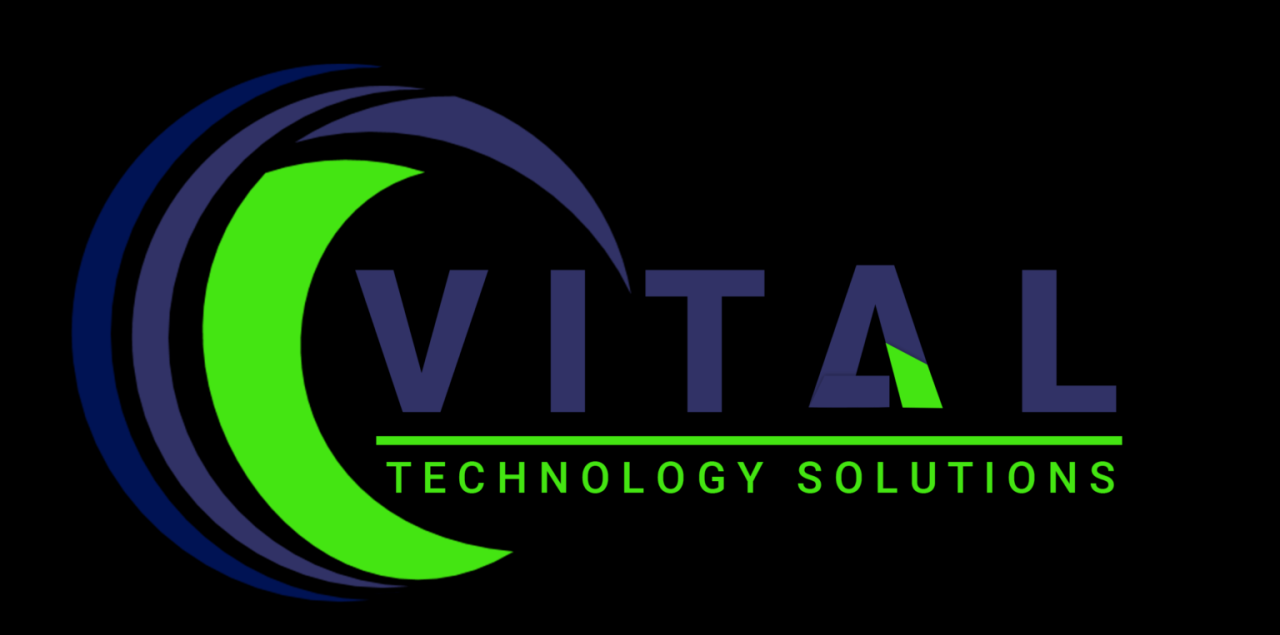Introduction to Business Technology: Transforming Industries
Introduction to business technology takes center stage as we delve into the dynamic world where technology and business intertwine. This field encompasses a wide range of concepts, tools, and strategies […]

Introduction to business technology takes center stage as we delve into the dynamic world where technology and business intertwine. This field encompasses a wide range of concepts, tools, and strategies that empower organizations to thrive in today’s rapidly evolving digital landscape. From data-driven decision-making to cutting-edge innovations like artificial intelligence, this exploration provides a comprehensive understanding of how technology is revolutionizing industries and shaping the future of work.
This journey will unveil the fundamental principles of business technology, including the importance of data, software, and cloud computing. We will examine how these concepts are applied across diverse sectors, such as finance, healthcare, and retail, showcasing the transformative power of technology in enhancing operational efficiency, customer experiences, and competitive advantage.
What is Business Technology?
Business technology, often referred to as BT, is the strategic application of technology to achieve business objectives. It encompasses the use of various tools, systems, and processes to improve efficiency, enhance productivity, and drive innovation within an organization.
Business technology differs from traditional information technology (IT) in its focus. While IT focuses on the technical infrastructure and systems, business technology prioritizes the application of technology to solve business problems and create value.
The Key Drivers and Trends Shaping the Evolution of Business Technology
The rapid advancements in technology and the changing business landscape are driving the evolution of business technology. Several key drivers and trends are shaping the future of BT:
- Digital Transformation: The shift towards digital processes and operations is a major driver of business technology. Organizations are embracing digital technologies like cloud computing, artificial intelligence (AI), and the Internet of Things (IoT) to streamline processes, enhance customer experiences, and gain a competitive edge. For example, companies are using AI-powered chatbots to provide instant customer support, and IoT sensors are being used to optimize manufacturing processes and improve supply chain management.
- Data Analytics and Big Data: Organizations are generating vast amounts of data, and leveraging this data for insights is crucial for informed decision-making. Business technology is playing a key role in enabling data analytics, predictive modeling, and business intelligence to extract valuable insights from data and drive strategic decisions. Companies are using data analytics to understand customer behavior, identify market trends, and optimize pricing strategies.
- Artificial Intelligence (AI): AI is revolutionizing various aspects of business, from automation to customer service. AI-powered applications are automating tasks, providing personalized recommendations, and enhancing decision-making. For instance, AI-powered chatbots are being used for customer service, and AI algorithms are used to detect fraud and optimize marketing campaigns.
- Cloud Computing: Cloud computing has transformed how organizations access and manage their IT resources. It offers flexibility, scalability, and cost-effectiveness, enabling businesses to adopt new technologies quickly and efficiently. Cloud-based solutions are used for various business functions, including email, collaboration, and software development.
- Cybersecurity: As businesses become increasingly reliant on technology, cybersecurity is paramount. Business technology solutions are evolving to address the growing threat of cyberattacks, including advanced security measures, threat intelligence, and data encryption.
Core Business Technology Concepts
Business technology is built upon a foundation of core concepts that underpin its functionality and impact on organizations. Understanding these concepts is essential for anyone involved in business technology, from developers to executives. This section delves into some of the most important concepts, exploring their significance and implications.
Data and its Importance in Business Technology
Data is the lifeblood of business technology. It provides the raw material for decision-making, process optimization, and innovation. Data is collected, analyzed, and interpreted to gain insights into customer behavior, market trends, and operational efficiency. The quality and accessibility of data are crucial for organizations to make informed decisions and remain competitive.
Types of Data Used in Business Operations
Businesses use various types of data to drive their operations. Here are some key categories:
- Transactional Data: This data records every transaction that occurs within a business, such as sales, purchases, and payments. It provides a detailed history of business activities and is essential for financial reporting and accounting.
- Analytical Data: This data is collected and analyzed to gain insights into business performance, customer behavior, and market trends. It helps organizations identify opportunities for improvement and make data-driven decisions.
- Operational Data: This data relates to the day-to-day operations of a business, such as production schedules, inventory levels, and customer service interactions. It helps organizations optimize processes, improve efficiency, and ensure smooth operations.
Software and its Impact on Business Processes
Software plays a vital role in automating and streamlining business processes. It encompasses a wide range of applications, from accounting software to customer relationship management (CRM) systems, each designed to address specific business needs. Software can automate tasks, improve efficiency, enhance communication, and provide valuable insights into business performance.
Cloud Computing and its Benefits for Businesses
Cloud computing has revolutionized the way businesses access and utilize technology. It allows organizations to access computing resources, such as servers, storage, and software, over the internet. Cloud computing offers several benefits, including:
- Cost Savings: Cloud services are often more cost-effective than traditional on-premise solutions, as businesses only pay for the resources they use.
- Scalability: Cloud services can easily scale up or down to meet changing business needs, providing flexibility and agility.
- Accessibility: Cloud services can be accessed from anywhere with an internet connection, enabling remote work and collaboration.
- Security: Cloud providers invest heavily in security infrastructure and measures, offering enhanced protection against cyber threats.
Cybersecurity in Business Technology
Cybersecurity is paramount in today’s digital landscape. Businesses must protect their data, systems, and networks from cyber threats, such as malware, phishing attacks, and data breaches. Effective cybersecurity measures are essential to maintain data integrity, protect sensitive information, and ensure business continuity.
Business Technology Applications

Business technology is not merely a set of tools; it’s a powerful engine driving innovation and efficiency across diverse industries. From automating complex financial transactions to revolutionizing healthcare delivery and transforming the retail landscape, business technology has become an indispensable element of modern business operations.
Business Technology in Different Industries
Business technology applications are diverse and tailored to the specific needs of each industry. Here are some examples:
- Finance: Financial institutions heavily rely on technology for tasks like online banking, stock trading, risk management, and fraud detection. Advanced analytics and artificial intelligence (AI) are used to analyze market trends, predict financial performance, and automate investment decisions. For instance, robo-advisors leverage AI algorithms to provide automated financial advice and portfolio management services to individual investors.
- Healthcare: Healthcare technology has transformed patient care, enabling faster diagnoses, more effective treatments, and improved patient outcomes. Electronic health records (EHRs) streamline patient information management, telemedicine facilitates remote consultations, and AI-powered diagnostic tools assist doctors in identifying diseases earlier and more accurately. For example, AI-powered image analysis tools can detect abnormalities in medical scans with greater accuracy than human radiologists, leading to earlier detection and more effective treatment of diseases like cancer.
- Retail: Retail businesses use technology to enhance customer experience, optimize inventory management, and personalize marketing campaigns. E-commerce platforms facilitate online shopping, point-of-sale (POS) systems streamline checkout processes, and data analytics provide insights into customer behavior, allowing retailers to personalize product recommendations and promotions. For instance, Amazon’s recommendation engine utilizes data from customer browsing and purchase history to suggest products they might be interested in, increasing sales and customer satisfaction.
Customer Relationship Management (CRM)
CRM systems are designed to manage and improve customer interactions. These systems consolidate customer data, track interactions, and automate marketing and sales processes. This allows businesses to personalize communications, provide better customer service, and build stronger relationships. For example, a CRM system can track customer preferences, purchase history, and communication history, enabling businesses to send targeted marketing campaigns, offer personalized product recommendations, and provide tailored customer support.
Supply Chain Management
Technology plays a crucial role in streamlining supply chain operations, improving efficiency, and reducing costs. Enterprise Resource Planning (ERP) systems integrate various business functions, including inventory management, procurement, and logistics, enabling real-time visibility into the supply chain. Supply chain management software helps optimize routes, track shipments, and manage inventory levels, ensuring timely delivery and minimizing disruptions. For instance, companies like FedEx and UPS utilize GPS tracking technology to monitor their delivery vehicles in real-time, optimizing delivery routes and providing customers with accurate delivery estimates.
Marketing and Sales
Technology has revolutionized marketing and sales strategies, enabling businesses to reach wider audiences, personalize campaigns, and track results more effectively. Digital marketing tools allow businesses to create targeted advertising campaigns, track website traffic, and analyze customer behavior. Social media platforms provide opportunities for engaging with customers, building brand awareness, and promoting products and services. For instance, businesses can utilize social media analytics to track the performance of their campaigns, understand audience demographics, and identify trends in customer engagement.
Human Resources and Talent Management
Technology is transforming the way businesses manage their workforce, improving efficiency, and enhancing employee engagement. Human resource management (HRM) systems automate tasks such as payroll, benefits administration, and recruitment, freeing up HR professionals to focus on strategic initiatives. Talent management platforms help businesses identify, develop, and retain top talent. For example, learning management systems (LMS) provide employees with access to online training courses and development programs, enhancing their skills and knowledge.
Emerging Business Technologies
The business landscape is constantly evolving, driven by advancements in technology. Emerging technologies are reshaping how businesses operate, interact with customers, and innovate. Understanding these technologies and their potential impact is crucial for businesses to stay competitive and thrive in the digital age.
Artificial Intelligence (AI)
AI is transforming business operations by automating tasks, improving decision-making, and enhancing customer experiences. AI algorithms can analyze vast amounts of data to identify patterns, predict trends, and provide insights that humans may miss.
- Automation: AI-powered robots and software can automate repetitive tasks, freeing up human employees for more strategic work. For example, AI-powered chatbots can handle customer service inquiries, while AI-driven systems can manage inventory and logistics.
- Decision-Making: AI can analyze data from various sources to provide data-driven insights that inform better decision-making. For example, AI can help businesses predict customer demand, optimize pricing strategies, and identify potential risks.
- Customer Experience: AI is used to personalize customer experiences, provide tailored recommendations, and improve customer service. For example, AI-powered recommendation engines can suggest products based on past purchases and browsing history, while AI-driven chatbots can provide 24/7 customer support.
Blockchain Technology
Blockchain is a decentralized, secure, and transparent ledger that records transactions across a network of computers. It has the potential to revolutionize various industries, including finance, supply chain management, and healthcare.
- Financial Transactions: Blockchain can facilitate faster, more secure, and less expensive financial transactions. Cryptocurrencies like Bitcoin are built on blockchain technology, and it is also used for other applications like cross-border payments and trade finance.
- Supply Chain Management: Blockchain can improve transparency and traceability in supply chains. By tracking products from origin to destination, businesses can ensure product authenticity, reduce fraud, and enhance efficiency.
- Healthcare: Blockchain can improve the security and privacy of medical records. It can also facilitate secure sharing of patient data between healthcare providers, enabling better coordination of care.
Internet of Things (IoT), Introduction to business technology
The IoT refers to the interconnected network of devices that collect and exchange data. This technology has the potential to transform business operations by enabling real-time monitoring, automation, and data-driven insights.
- Real-time Monitoring: IoT sensors can monitor equipment performance, environmental conditions, and other critical factors in real-time. This data can be used to identify potential issues, optimize operations, and prevent downtime.
- Automation: IoT devices can automate processes, such as controlling lighting, temperature, and security systems. This can improve efficiency, reduce costs, and enhance safety.
- Data-driven Insights: IoT devices generate vast amounts of data that can be analyzed to gain insights into business operations. This data can be used to improve decision-making, optimize processes, and develop new products and services.
Virtual and Augmented Reality
Virtual reality (VR) and augmented reality (AR) are immersive technologies that are transforming how businesses interact with customers, train employees, and design products.
- Customer Engagement: VR and AR can create immersive experiences that enhance customer engagement. For example, VR can be used to provide virtual tours of products or services, while AR can be used to overlay digital information onto the real world, such as product demos or interactive instructions.
- Employee Training: VR and AR can create realistic simulations that provide immersive training experiences. For example, VR can be used to train employees on complex procedures, while AR can be used to overlay instructions onto real-world tasks.
- Product Design: VR and AR can be used to create prototypes and visualize products in 3D. This can help businesses design better products, improve collaboration among designers, and reduce development time.
The Future of Business Technology: Introduction To Business Technology
The future of business technology is an exciting landscape filled with transformative possibilities. Emerging technologies are poised to reshape how businesses operate, interact with customers, and navigate the global marketplace. Understanding the potential impact of these advancements and proactively preparing for them is crucial for organizations seeking to thrive in this dynamic environment.
The Impact of Emerging Technologies
The rapid evolution of emerging technologies is driving a profound shift in the business landscape. These advancements are not only transforming industries but also creating entirely new opportunities.
- Artificial Intelligence (AI): AI is revolutionizing business operations by automating tasks, enhancing decision-making, and personalizing customer experiences. For example, AI-powered chatbots are providing 24/7 customer support, while machine learning algorithms are analyzing vast amounts of data to identify trends and optimize business processes.
- Internet of Things (IoT): The IoT is connecting physical devices to the internet, enabling businesses to collect real-time data and gain unprecedented insights. This data can be used to improve efficiency, enhance product development, and create new business models. For example, smart factories are using IoT sensors to monitor production processes, optimize resource allocation, and reduce downtime.
- Blockchain Technology: Blockchain technology is creating secure and transparent systems for tracking transactions and managing data. This has significant implications for industries such as finance, supply chain management, and healthcare. For example, blockchain is being used to streamline financial transactions, track the provenance of goods, and secure medical records.
- Cloud Computing: Cloud computing is providing businesses with flexible and scalable computing resources, allowing them to access powerful applications and services without the need for expensive infrastructure. This has enabled businesses to innovate faster and respond more effectively to changing market conditions. For example, cloud-based platforms are enabling businesses to launch new products and services quickly and efficiently, while also reducing IT costs.
- Virtual and Augmented Reality (VR/AR): VR and AR technologies are transforming how businesses interact with customers and employees. VR is creating immersive experiences for training, product demonstrations, and entertainment, while AR is overlaying digital information onto the real world, enhancing productivity and providing valuable insights. For example, AR is being used in retail to provide customers with interactive product information, while VR is being used in manufacturing to train employees on complex equipment.
Preparing for Future Technological Advancements
Businesses must proactively prepare for the technological advancements that are reshaping the business landscape. This requires a strategic approach that encompasses several key areas:
- Embrace Continuous Learning: The rapid pace of technological change necessitates a culture of continuous learning. Businesses must invest in training and development programs to ensure their workforce has the skills and knowledge to adapt to emerging technologies. This includes providing opportunities for employees to learn about new technologies, experiment with innovative tools, and stay abreast of industry trends.
- Foster Innovation: Businesses must create an environment that encourages experimentation and innovation. This involves fostering a culture of creativity, providing resources for research and development, and embracing a mindset of continuous improvement. By embracing innovation, businesses can leverage emerging technologies to develop new products, services, and business models.
- Invest in Technology Infrastructure: Businesses must invest in robust technology infrastructure to support their digital transformation. This includes upgrading hardware and software, adopting cloud-based solutions, and ensuring data security and privacy. By investing in technology infrastructure, businesses can ensure they have the foundation to effectively implement emerging technologies and capitalize on their benefits.
- Develop a Data-Driven Culture: Businesses must embrace a data-driven approach to decision-making. This involves collecting, analyzing, and interpreting data to gain insights into customer behavior, market trends, and operational efficiency. By leveraging data analytics, businesses can make more informed decisions, optimize processes, and improve customer experiences.
- Build Strategic Partnerships: Businesses should consider building strategic partnerships with technology providers, research institutions, and other organizations to access expertise and resources. These partnerships can provide businesses with access to cutting-edge technologies, industry insights, and support for innovation. By collaborating with others, businesses can accelerate their digital transformation and stay ahead of the competition.
Ethical Considerations in Business Technology
As businesses increasingly rely on technology, it is crucial to address the ethical implications of its use. Ethical considerations should guide the development, implementation, and use of business technology to ensure responsible and sustainable practices.
- Data Privacy and Security: Businesses must prioritize data privacy and security, ensuring that customer data is collected, stored, and used ethically and responsibly. This includes complying with data protection regulations, implementing robust security measures, and obtaining informed consent from customers. Businesses should also be transparent about how they use customer data and provide individuals with the ability to access, correct, or delete their information.
- Algorithmic Bias: Algorithms are increasingly used in decision-making processes, but it is crucial to address the potential for bias. Algorithms can perpetuate existing societal biases if they are trained on biased data or designed without considering potential ethical implications. Businesses must actively work to identify and mitigate algorithmic bias, ensuring that their technology is fair, equitable, and does not discriminate against individuals or groups.
- Job Displacement: Automation and other technological advancements are transforming the workplace, leading to concerns about job displacement. Businesses should consider the potential impact of their technology on employees and implement strategies to mitigate job losses. This includes providing training and upskilling opportunities, promoting reskilling programs, and exploring new job creation opportunities.
- Social Responsibility: Businesses have a responsibility to use technology in a way that benefits society. This includes addressing social issues, promoting inclusivity, and contributing to the well-being of communities. Businesses should consider the broader social impact of their technology and strive to create positive outcomes for all stakeholders.
Last Recap
As we conclude our exploration of introduction to business technology, we are left with a profound appreciation for the transformative role technology plays in shaping the modern business landscape. From its core concepts to its emerging applications, this field is constantly evolving, presenting both exciting opportunities and complex challenges. By embracing a forward-thinking approach, businesses can harness the power of technology to navigate the complexities of the digital age, drive innovation, and ultimately achieve sustainable success.
Introduction to Business Technology provides a foundation for understanding the role of technology in modern business operations. Institutions like the American Institute of Technology offer programs that delve into key areas such as data analytics, cybersecurity, and cloud computing, equipping students with the skills necessary to navigate the ever-evolving technological landscape of the business world.










